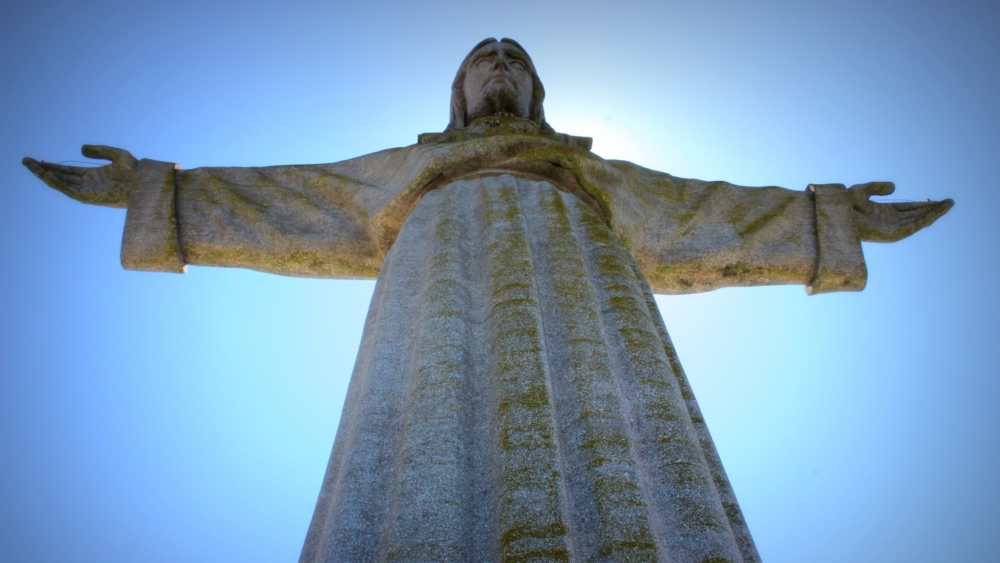If Jesus were preaching a sermon today, he would start by saying “blessed are the poor in spirit, for they will inherit the kingdom of God.”
At least, we’re on fairly safe ground imagining that’s what he’d say, according to prominent Christian scholar John Dickson. After all, this was the opening line in what has become known as the Beatitudes in Jesus’ famous Sermon on the Mount more than 2000 years ago.
More importantly, Dickson explains, Christians need to accept that they are spiritually and morally bankrupt – or “poor in spirit” – before they are able to accept Jesus’ other teachings. It is a necessary posture, he says, for accepting the command to “take the log out of your eye” without taking offence.
Dickson, a Sydney Anglican minister and popular Christian author and media commentator, was fielding questions in an interview today with seasoned broadcast journalist Johanna Nicholson at a Sydney Writers’ Festival session on his new book, A Doubter’s Guide to Jesus.
When asked whether it was more important that Christians have a “by-the-book-at-all-costs” approach to living, or seek to “reflect the character of Jesus,” Dickson insisted that living “by the book” did not require Christians to become fundamentalist Bible bashers.
“Humility, self-sacrifice, taking the log out of your eye is all ‘by the book,’” he said during the session.
Dickson argued that the problem with Christianity being so successful in the past was that Christians had got used to “calling the shots” and having “legislative authority”.
“Humility, self-sacrifice, taking the log out of your eye is all ‘by the book.’” – John Dickson
The same mindset caused Christians today to describe Australia as a “Christian nation” and “speak to Australia like some backsliding Christian that they have moral authority over and should call back.” This approach was “wrong-headed” and inconsistent with Jesus’ teachings found in statements such as “the last shall be first”.
Instead, Dickson told festival attendees that Christians should be encouraged by the example of the early church, which lacked influence and power and yet transformed the Roman world through persuasion and service.
That did not mean, he said, that Christians belonged on the “sidelines” of society; instead, he asserted, they should be “players, just not the referee.”
“When many Christians speak [in a public forum], they sound like you’re meant to listen to them because they are the referee,” he said.
“Jesus wrote a beautiful tune. We have sometimes been a bad performance.” – John Dickson
“Until that disappears, we don’t deserve a hearing and I don’t think we’re going to get one.”
Dickson said Christians should engage with non-Christians in a manner that communicates, “I don’t have legislative authority; nor do I assume you have to listen to me.”
Asked how he thought Jesus would score the modern church’s performance of living his teachings, he suggested Jesus would give some periods of history a high mark and others a fail.
“You have to think of Jesus’ life like a performance of Bach’s Cello Suites,” he said, explaining that the works were not only a personal favourite but regarded by classical music experts as some of the most technically brilliant music ever composed.
“They can be played well or they can be played badly,” Dickson said.
“Jesus wrote a beautiful tune. We have sometimes been a bad performance.”


